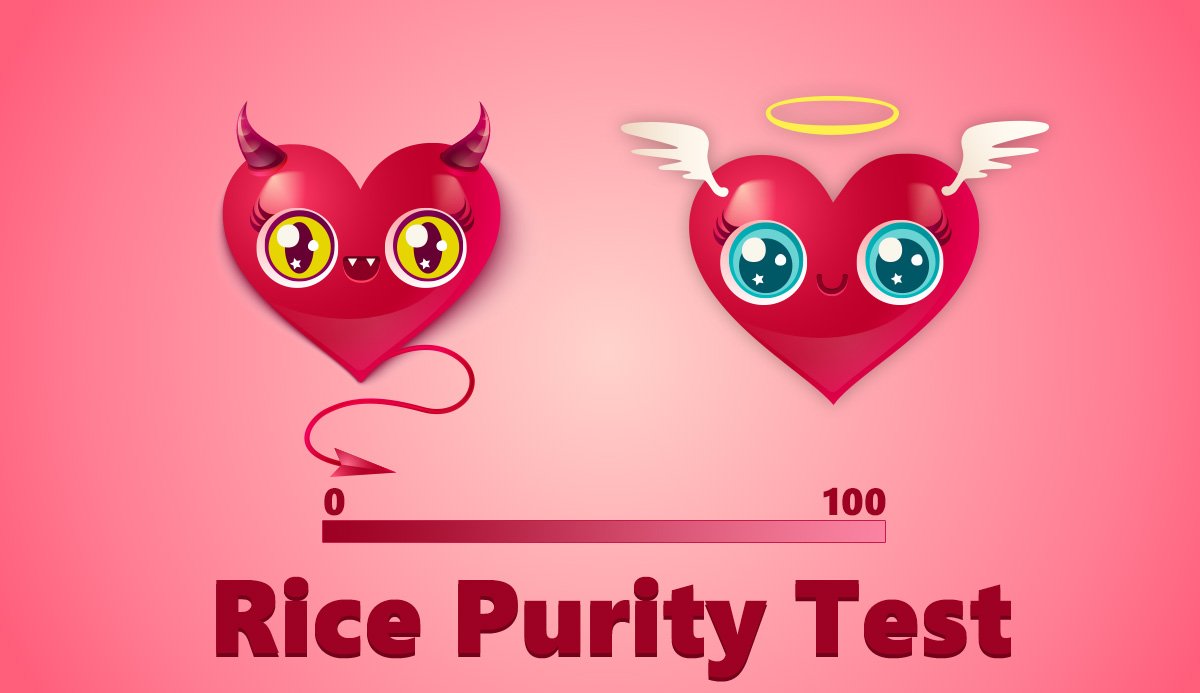The Rice Purity Test is a self-graded survey that originated at Rice University in Houston, Texas. It’s designed to gauge a person’s level of innocence or experience in various aspects of life, particularly related to relationships, activities, and behavior. This test has gained popularity across various educational institutions and social circles as a fun and informal way to compare experiences.
What Does the Rice Purity Test Score Mean?
Explanation of Scoring System
The Rice Purity Test typically consists of a list of questions, each representing a specific behavior or experience. Participants are required to answer honestly, and their responses are scored based on a predetermined scale. The scores range from 0 to 100, with a lower score indicating a higher level of purity or innocence and a higher score suggesting more varied life experiences.

Interpretation of Scores
Interpreting the score of a Rice Purity Test can vary widely depending on individual perspectives and societal norms. Some may view a low score as indicative of a sheltered or conservative lifestyle, while others may see it as a sign of openness and adventure. Conversely, a high score might be perceived as evidence of restraint or prudence, or alternatively, as a lack of exploration and curiosity.
What is a Rice Purity Test?
Origin and History of the Test
The Rice Purity Test traces its origins back to Rice University, where it was reportedly first administered as a means for students to bond and share experiences. Over time, it evolved into a widespread phenomenon, with variations of the test circulating online and among different communities. Despite its name, the test is not affiliated with Rice University and is not officially endorsed by the institution.
Purpose of the Test
The primary purpose of the Rice Purity Test is to provide individuals with insight into their own experiences and behaviors. By answering a series of questions honestly, participants can reflect on their past actions and assess their comfort level with various aspects of life. Additionally, the test can serve as a conversation starter and a source of amusement among friends.
How the Test is Conducted
The Rice Purity Test is typically administered in a questionnaire format, either online or in print. Participants are presented with a series of statements or scenarios and are asked to indicate whether they have ever engaged in the described activity. The questions cover a wide range of topics, including romantic relationships, substance use, academic integrity, and more.
What Does the Result of the Rice Purity Test Mean?
Impact on Individuals
For many individuals, the result of the Rice Purity Test can provoke a range of emotions and reactions. Some may feel proud of their score, seeing it as a reflection of their values and choices. Others may experience regret or embarrassment over certain responses, especially if they diverge significantly from societal norms or personal expectations. Ultimately, the significance of the test lies in how individuals choose to interpret and internalize their results.
Social Perception
In addition to its personal implications, the Rice Purity Test can also influence how individuals are perceived within their social circles. Depending on the prevailing attitudes and cultural norms, a person’s score may be met with admiration, curiosity, or judgment by others. However, it’s important to remember that the test is not a definitive measure of character or worth, and everyone’s experiences are valid in their own right.
FAQs
-
- Is the Rice Purity Test scientifically valid?
- The Rice Purity Test is not intended to be a scientifically rigorous assessment. It’s more of a fun and informal way for individuals to reflect on their experiences.
- Can I retake the Rice Purity Test?
- Yes, you can retake the test as many times as you like. It’s common for people to retake the test periodically to see how their scores change over time.
- Do employers or universities take the Rice Purity Test into account?
- Generally, the Rice Purity Test is not considered in academic or professional contexts. It’s more of a social activity than a formal evaluation.
- What if I’m uncomfortable with some of the questions on the test?
- It’s okay to skip questions that make you uncomfortable or that you’d prefer not to answer. The test is voluntary, and you have the right to withhold any information you’re not comfortable sharing.
- Is the Rice Purity Test meant to be taken seriously?
- While the test can provide interesting insights, it’s ultimately meant to be lighthearted and fun. It’s important not to take the results too seriously or to judge others based on their scores.
Conclusion
The Rice Purity Test offers a playful yet thought-provoking way for individuals to reflect on their past experiences and choices. While the score may carry social significance, it’s ultimately up to each person to determine its meaning and relevance in their own lives. Whether high or low, the score is just one aspect of a person’s story, and it should be celebrated as such.
Also,Reads More>>>Office Design
- While the test can provide interesting insights, it’s ultimately meant to be lighthearted and fun. It’s important not to take the results too seriously or to judge others based on their scores.
- Is the Rice Purity Test scientifically valid?




